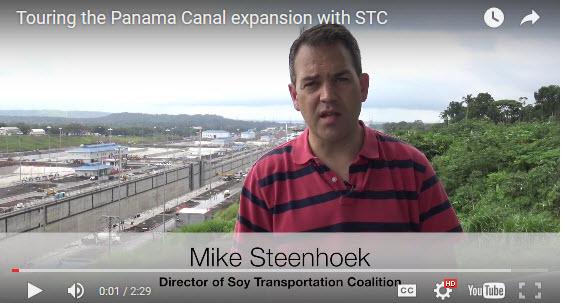The expanded Panama Canal is expected to be open this year and US farmers are excited for the development, which is expected to boost soybean exports once completed.
Star Tribune reported that the expansion work on the 50-mile canal means a lot to the shipment of soybean harvests from the United States to other parts of the world.
It also explained that the soybean exports would usually be shipped using the Mississippi River to the Gulf of Mexico, but the 600 million bushels would be transited using the Panama Canal going to Asia.
“It’s an amazing feat what they’re building. It’s a major, major project, and unless you see it for yourself, it’s really hard to even look at pictures and get a sense of how big it is,” said Minnesota soybean farmer Joel Schreurs in the Star Tribune report.
Economist Su Ye also agreed with Schreurs, noting that grain exports like corn from Minnesota to Asia will also be boosted by the Panama Canal expansion.
An earlier Forbes report also detailed that other agricultural areas in the US, like Houston, will also benefit from the soon-to-be-opened project. The canal reportedly connects Houston to Latin American countries and also Asian markets like the Philippines, Japan, China and South Korea.
Port of Houston executive director Roger Guenther said that people can expect that consumer goods will be coming in while materials to make these goods will be exported.
“So from toys to garments to household goods, you name it, are coming in through the Panama Canal from Asia, and the things that are going out can be cotton, agricultural-type [products], petrochemical-related products [like] polyethylene and those types of plastics,” Guenther noted.
Situated between the Atlantic and Pacific Oceans, the Panama Canal provides an easier and faster route for ships who would not want to take the Cape Horn route.
Its official website explained that the expansion, which started in 2007 and costs $5.2 billion, aimed to create “a new lane of traffic” along the canal with the construction of new locks, thus doubling its capacity.
The Wall Street Journal said the main purpose is to really enable larger ships to carry more goods through a deeper canal.
Existing locks in the Panama Canal reportedly carried 5,000 TEUs (twenty foot equivalent unit), but the expansion promises a capacity of 13,000 TEUs, more than double the previous capacity of the canal.
“It will have a direct impact on economies of scale and international maritime trade,” added the official website.
The expansion also involved creating an access channel in the Pacific, improving navigational channels through dredging and improving water supply.

